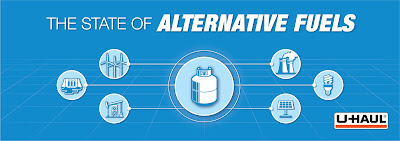Propane is commonly used as an alternative to natural gas in various applications due to its portability, versatility, and energy efficiency. Here are some key points about using propane as an alternative to natural gas:
Properties of Propane:
Propane is a hydrocarbon gas that is stored in a pressurized liquid form. It is a byproduct of natural gas processing and crude oil refining. Propane is odorless, but an odorant is added for safety reasons to detect gas leaks.
Applications:
Propane can be used as an alternative fuel for various purposes, including heating, cooking, water heating, and powering vehicles. It's commonly used in rural areas or locations where natural gas infrastructure is limited or unavailable.
Advantages:
Energy Density: Propane has a higher energy density than natural gas, which means it can provide more energy per unit volume.
Portability: Propane is often stored in tanks, making it suitable for off-grid applications, rural homes, and mobile homes.
Versatility: Propane can power a wide range of appliances, including furnaces, water heaters, stoves, ovens, dryers, and generators.
Consistent Supply: Propane is readily available and can be delivered by trucks to locations without direct access to gas pipelines.
Considerations:
Storage and Safety: Propane is stored in pressurized tanks, so proper storage and handling are important for safety. Regular inspections and maintenance are necessary.
Installation: Appliances that use propane often require specific installations and adjustments compared to natural gas appliances. It's important to follow manufacturer guidelines and safety regulations.
Cost: The cost of propane can vary based on location and market conditions. It's important to compare the cost of propane to other energy sources when making decisions.
Conversion and Compatibility:
Appliances: Some appliances can be converted from natural gas to propane, but modifications are usually required due to differences in gas properties. Consult with professionals for proper conversions.
Burner Jets: Propane and natural gas have different combustion properties, so burner jets in appliances need to be adjusted or replaced when switching between the two gases.
Environmental Considerations:
Carbon Emissions: Propane combustion produces fewer carbon emissions than many other fossil fuels, making it a relatively cleaner-burning option.
Renewable Propane: There are efforts to produce renewable propane from sustainable sources, reducing its environmental impact further.
Using propane as an alternative to natural gas can provide energy solutions in areas where natural gas infrastructure is limited or where portability is important. When considering propane, it's crucial to understand the safety measures, installation requirements, and cost implications specific to your location and intended applications. Consulting with professionals in the field can help you make informed decisions about using propane as an energy source.

